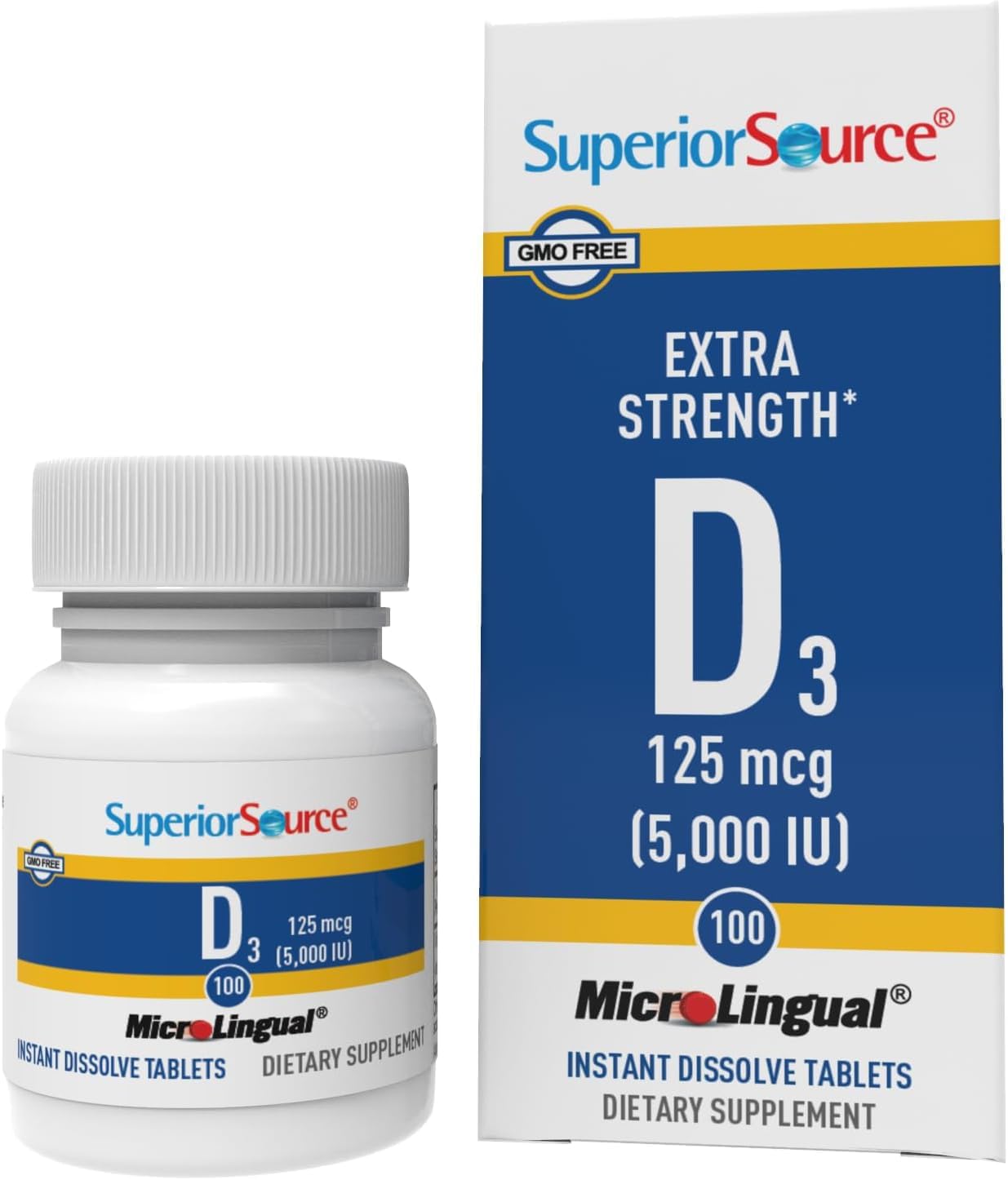







Price: $12.49
(as of Apr 06, 2025 22:57:23 UTC - Details)
What’s the Best Way to Take Vitamin D? A Comprehensive Guide
Introduction
Are you wondering what's the best way to take vitamin D? You're not alone. Vitamin D is crucial for our health, affecting everything from bone strength to immune function. Many people find themselves confused about how to effectively incorporate this vital nutrient into their daily routine. In this article, we will explore the best ways to take vitamin D, covering various methods, dosages, and tips for maximizing its benefits. Whether you're considering supplements, dietary sources, or sun exposure, we’ve got you covered!
1. Understanding Vitamin D: Why It’s Essential
Before we dive into how to take vitamin D, let’s understand why it’s so important. Vitamin D plays a significant role in maintaining bone health by helping your body absorb calcium. It also supports your immune system, muscle function, and even has roles in mood regulation. Knowing its benefits can motivate you to ensure you're getting enough of it in your diet.
2. The Best Sources of Vitamin D
2.1 Natural Sunlight: Your Body’s Best Friend
One of the best ways to get vitamin D is through sun exposure. When your skin is exposed to the sun, it produces vitamin D naturally. Aim for about 10-30 minutes of sunlight several times a week, depending on your skin type, location, and the time of year. Just remember to balance sun exposure with skin protection to reduce the risk of sunburn and skin cancer.
2.2 Dietary Sources of Vitamin D
If you’re not getting enough sun, food can be a great alternative. Fatty fish like salmon and mackerel, fortified dairy products, and egg yolks are excellent sources of vitamin D. Incorporate these foods into your meals to boost your vitamin D intake. For those following a plant-based diet, consider fortified plant milks or supplements to fill the gap.
3. Vitamin D Supplements: A Convenient Option
3.1 Choosing the Right Supplement Type
Supplements can be a convenient way to ensure you’re getting enough vitamin D. There are two main types: D2 (ergocalciferol) and D3 (cholecalciferol). D3 is generally recommended as it’s more effective at raising vitamin D levels in the bloodstream. Look for high-quality brands that provide clear dosing instructions.
3.2 Understanding Dosage Recommendations
When it comes to dosage, it’s essential to strike a balance. The recommended daily allowance varies by age, health status, and sun exposure. Generally, adults can aim for 600-800 IU per day, but higher doses may be necessary for those with deficiencies. Always consult with a healthcare provider before starting a new supplement regimen.
4. Timing Your Vitamin D Intake
4.1 When to Take Vitamin D for Maximum Absorption
Did you know that the timing of your vitamin D intake can affect how well your body absorbs it? Taking vitamin D with a meal that contains healthy fats can enhance absorption. Consider taking your supplement during breakfast or lunch when you’re likely to consume foods rich in fats, like avocados or nuts.
4.2 Consistency is Key
To reap the benefits of vitamin D, consistency is crucial. Make it a part of your daily routine. Whether it’s a morning ritual or an evening routine, find a time that works for you to ensure you don’t forget it.
5. Recognizing Signs of Vitamin D Deficiency
5.1 Symptoms to Look Out For
It’s vital to be aware of the signs of vitamin D deficiency. Symptoms can include fatigue, bone pain, muscle weakness, and mood changes. If you suspect you may be deficient, consider getting your vitamin D levels checked by a healthcare professional.
5.2 Importance of Regular Testing
Regular testing can help monitor your vitamin D levels, especially if you have risk factors for deficiency, such as limited sun exposure or specific health conditions. This allows you to adjust your intake accordingly, ensuring you stay within the optimal range.
6. Addressing Common Myths About Vitamin D
6.1 Debunking Misconceptions
There are many myths surrounding vitamin D that can lead to confusion. For instance, some believe that only sun exposure can provide adequate vitamin D. While sunlight is a primary source, dietary sources and supplements are equally important, especially for those living in areas with limited sunlight.
6.2 Vitamin D and Weight Management
Another common misconception is that vitamin D can directly help with weight loss. While it plays a role in overall health, it’s not a magic solution for shedding pounds. A balanced diet and regular exercise are crucial for maintaining a healthy weight.
Conclusion
In summary, understanding the best way to take vitamin D is essential for maintaining your overall health. Whether you prefer sun exposure, dietary sources, or supplements, the key is consistency and awareness of your body’s needs. By making informed choices, you can ensure you’re getting enough vitamin D to support your immune system, bone health, and overall well-being. Don't hesitate to consult with a healthcare professional for personalized advice, especially if you suspect a deficiency. Remember, your health is your wealth!
Immunity Support: Superior Source Vitamin D-3 contains vitamin D3 to support a healthy immune system, brain, and nervous system; it also helps with calcium absorption
Bone Health Support: This health supplement is also designed to support the body's natural ability to maintain strong bones and teeth
Pure Ingredients: Our D-3 tablets are non-GMO and contain no excessive fillers, additives, or excipients, focusing on quality and purity for your dietary needs
Quick Absorption: The sublingual technology enables rapid dissolution for enhanced absorption, providing immunity support with ease
About Us: Superior Source has been formulating sublingual vitamins since 1998 in our family-owned manufacturing facility
